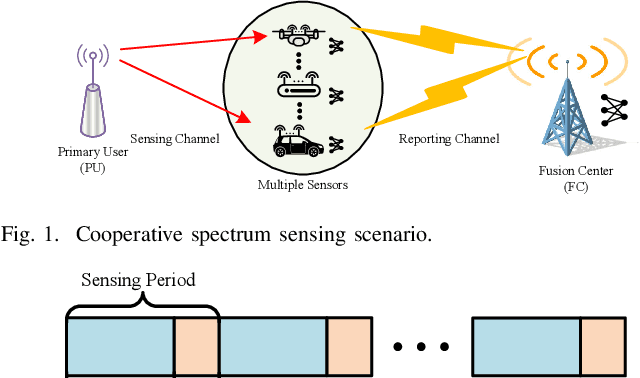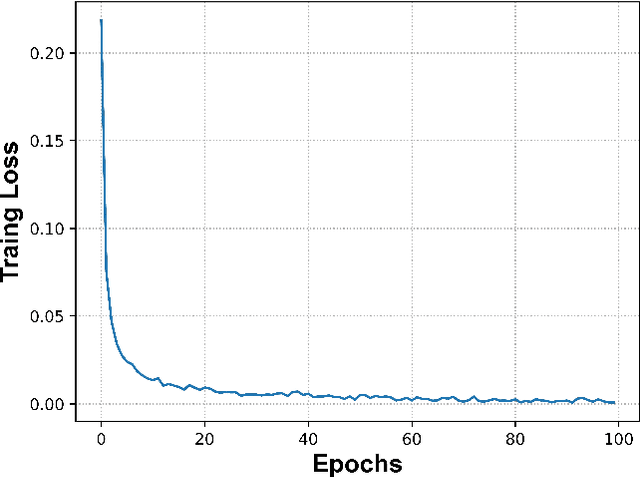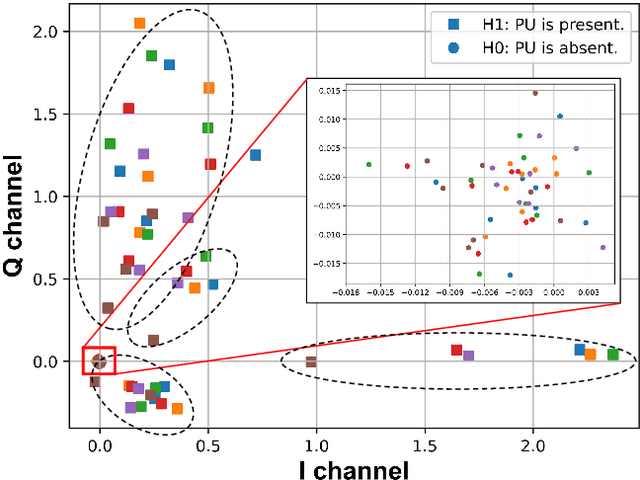Integrated Distributed Semantic Communication and Over-the-air Computation for Cooperative Spectrum Sensing
Paper and Code
Nov 08, 2023



Cooperative spectrum sensing (CSS) is a promising approach to improve the detection of primary users (PUs) using multiple sensors. However, there are several challenges for existing combination methods, i.e., performance degradation and ceiling effect for hard-decision fusion (HDF), as well as significant uploading latency and non-robustness to noise in the reporting channel for soft-data fusion (SDF). To address these issues, in this paper, we propose a novel framework for CSS that integrates communication and computation, namely ICC. Specifically, distributed semantic communication (DSC) jointly optimizes multiple sensors and the fusion center to minimize the transmitted data without degrading detection performance. Moreover, over-the-air computation (AirComp) is utilized to further reduce spectrum occupation in the reporting channel, taking advantage of the characteristics of the wireless channel to enable data aggregation. Under the ICC framework, a particular system, namely ICC-CSS, is designed and implemented, which is theoretically proved to be equivalent to the optimal estimator-correlator (E-C) detector with equal gain SDF when the PU signal samples are independent and identically distributed. Extensive simulations verify the superiority of ICC-CSS compared with various conventional CSS schemes in terms of detection performance, robustness to SNR variations in both the sensing and reporting channels, as well as scalability with respect to the number of samples and sensors.
 Add to Chrome
Add to Chrome Add to Firefox
Add to Firefox Add to Edge
Add to Edge